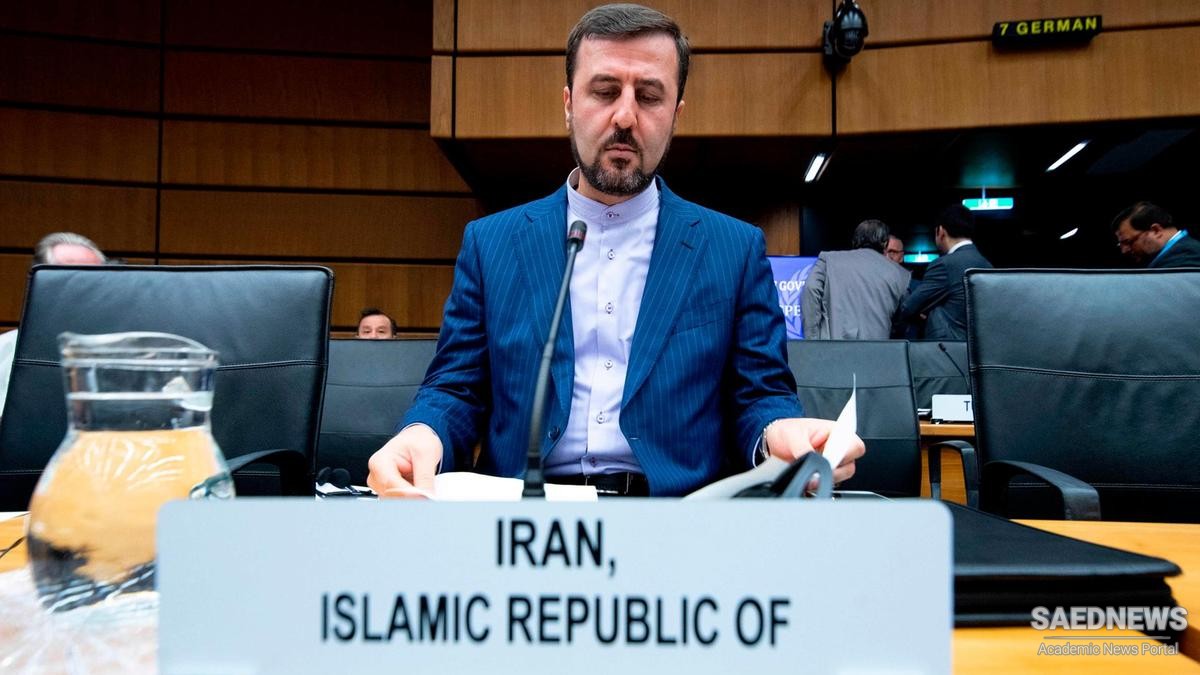Geneva, SAEDNEWS, Nov. 23: “Before the nuclear deal, Iran had three times more enriched uranium than the current size and 36 times more than the amount stated in the nuclear deal but it never diverted from peaceful activities,” Qaribabadi said on Sunday.
He added that the US cannot withdraw from the nuclear deal and at the same time expect Iran to remain committed to its undertakings based on the agreement, saying that it is ridiculous that a country like the US which has thousands of atomic warheads and has used it against innocent Japanese people is voicing concern about Iran which is committed to its undertakings under direct supervision of the International Atomic Energy Agency (IAEA).
Qaribabadi said that Iran is cooperating with the IAEA to the highest levels and it is allowing one fifth of the UN nuclear watchdog’s inspections in all member states.
In relevant remarks on Thursday, Qaribabadi said that his country has permitted the UN nuclear watchdog's access to demanded sites only based on its good will and in a voluntary move.
"It should be stressed that in accordance with the provisions of the JCPOA, Iran is provisionally and voluntarily implementing the Additional Protocol; therefore, providing the Agency with the requested access was done in good-will, and this should be seen as a foundation to resolve the issue, meaning a beginning for an end," Qaribabadi said, addressing the IAEA Board of Governors' virtual meeting on Verification and Monitoring in the Islamic Republic of Iran in Light of United Nations Security Council resolution 2231 (2015).
"Thus, expressing concerns or setting artificial deadlines without due consideration of the context within which we are in, is counter-productive and will damage the existing good-will. It is noteworthy that despite different understanding of technical matters between the two sides, interactions are still ongoing with a view to finalize the resolution of the matter, hence any hasty comments and conclusions should be avoided," he added.
US President Donald Trump, a stern critic of the historic deal, unilaterally pulled Washington out of the JCPOA in May 2018, and unleashed the “toughest ever” sanctions against the Islamic Republic in defiance of global criticism in an attempt to strangle the Iranian oil trade, but to no avail since its "so-called maximum pressure policy" has failed to push Tehran to the negotiating table.
In response to the US’ unilateral move, Tehran has so far rowed back on its nuclear commitments four times in compliance with Articles 26 and 36 of the JCPOA, but stressed that its retaliatory measures will be reversible as soon as Europe finds practical ways to shield the mutual trade from the US sanctions.
Tehran has particularly been disappointed with failure of the three European signatories to the JCPOA -- Britain, France and Germany -- to protect its business interests under the deal after the United States' withdrawal.
On January 5, Iran took a final step in reducing its commitments, and said it would no longer observe any operational limitations on its nuclear industry, whether concerning the capacity and level of uranium enrichment, the volume of stockpiled uranium or research and development (Source: Fars News).


 Iranian Parliament Lauds National Intelligence Service for Major Successful Operations
Iranian Parliament Lauds National Intelligence Service for Major Successful Operations














































